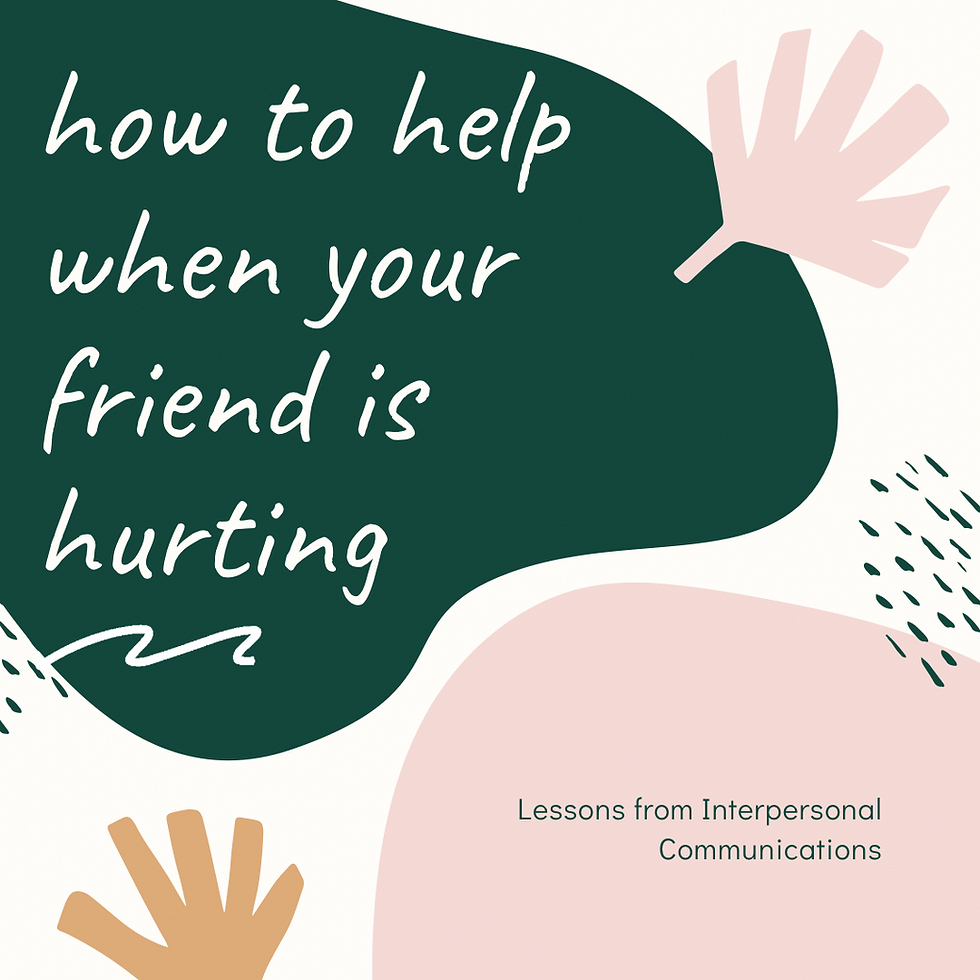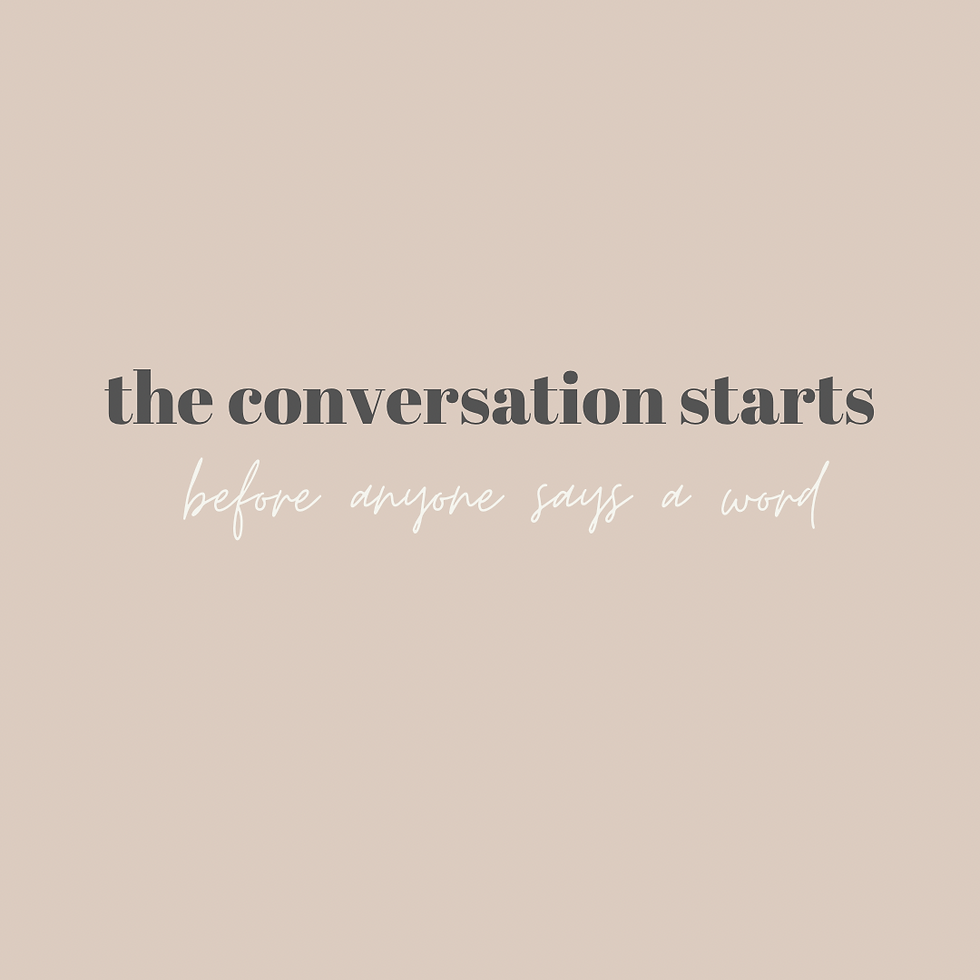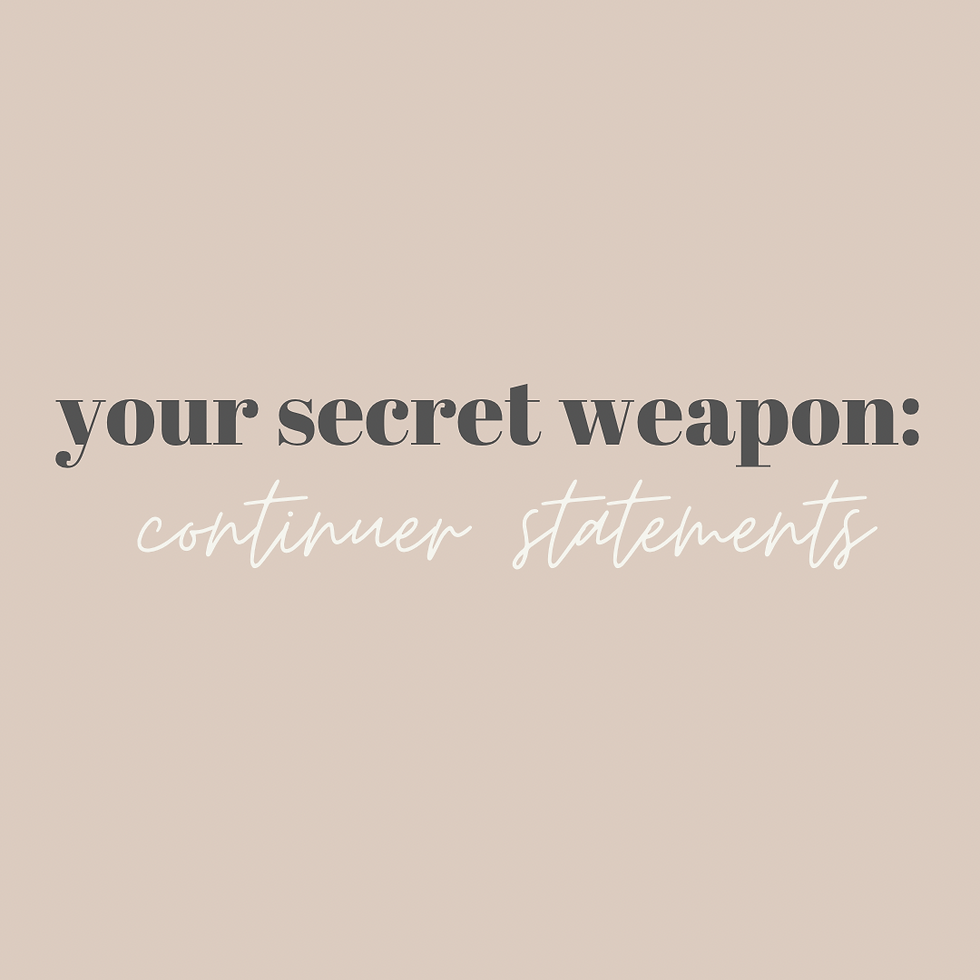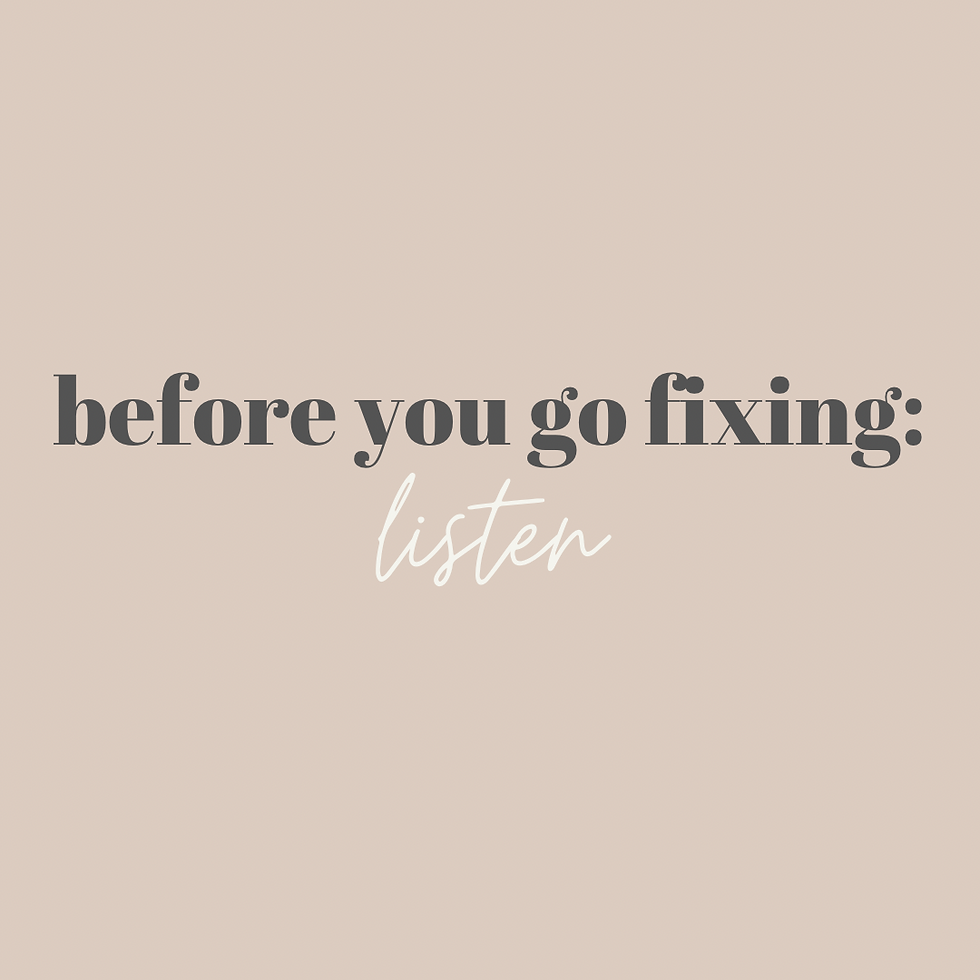How to Help When Your Friend is Hurting
- amanda brow

- Jan 16, 2021
- 5 min read

Every once in a while, a gut-wrenching moment comes along.
You know what I’m talking about.
The phone call at two in the morning, the voice on the other end frantic and tear-logged. The text with red flags ALL over it from a friend having a really hard day, but trying to pretend like she’s not. That time you show up to lunch to find your lunch date forcing a smile and avoiding eye contact.
A stone lodges itself in your throat. What do you say? What do you do? As a person who cares deeply about them, what can you do to make it better?
The thing is, most of us aren’t really trained for this kind of thing. And yet, these situations come up over and over again, especially in the political, social, and medical mayhem we’re living in. It’s times like these that I’m thankful some kinds of education can be implemented immediately "in the field". If you’re struggling with what to say or what to do when someone you care about is having a hard go of it, take a look at these lessons from Interpersonal Communications.
First: Get Ready

The moments before anyone’s mouth ever opens are actually extremely critical. Believe it or not, the conversation starts way before any words are dropped.
Put away distractions: You might not realize it, but even just having your phone OUT makes the person you’re talking to feel like your attention is divided. That’s right: studies show that even if you’re not texting, browsing Instagram, or taking a phone call, if your phone is on the table, the person in front of you will rate the quality of the conversation (and your empathy for them!) MUCH lower. So take it from me: stuff that phone in your pocket, leave it in the car, or put it somewhere out of view.
Get your head in the zone: Often, especially when we’re terrified of saying the wrong thing, we have this habit of planning our reply while the other person is still pouring their heart out. While there’s nothing wrong with wanting to be prepared, this is totally obvious to your hurting person. While your mind is racing to come up with a response, you check out of the conversation in the moment. Your facial expressions and body language aren’t as responsive, you may miss key information, and overall, you’ll appear more distracted. For these conversations, try to let go of the instinct to plan what you’ll say next and just listen.
Next: While They’re Talking…

Keep it comin’: One of the best feelings in the world is when a friend hits you with one of these...
“I can’t believe she said that. You must have felt so left out.”
“What happened next??”
“I’m so proud of you for responding like that. How did he react?”
These are called continuer statements, and they are designed to keep the person talking and validate the emotions they’re expressing. This is how you respond to a friend kindly when they’re off-loading emotional baggage, having a crisis, or just sound like they need to get some things off their chest. Notice that a lot of these end in questions: ask questions. A lot of questions. You can also use your personal experiences to empathize, like this…
“I totally get that. When I shared a studio apartment with my best friend in college, it really put a strain on our relationship."
....but if you’re going to do that, make sure you follow up with a question to turn the conversation back to them, like this…
“I totally get that. When I shared a studio apartment with my best friend in college, it really put a strain on our relationship. What's changed in your friendship since she moved in?”
Put them on repeat: Another skill you can develop for talking people through tough situations is paraphrasing. This one felt so awkward to me at first, but after a while, I started to notice it came easily to me, clarified what I’d heard, and made the other person feel like I’d really listened to them. Easy lead-ins for paraphrasing are things like…
“I’m so sorry you’re feeling… (unheard, frustrated, overwhelmed). Tell me more about that.”
“I would feel... (anxious, angry, grossed-out) if I were you, too!!”
Zip it: Last thing about being an active listener, and it’s so important… Don’t. Interrupt. Even if it feels organic, even if something is begging to burst out of your mouth in the middle of their story, keep it tucked in for a minute. By giving them the full space (and maybe even a little extra silence) to say what they need to say, your hurting friend will be able to express everything they need to, and feel like you're really there for them selflessly.
When It’s Your Turn

To Advise or Not to Advise: When someone you love is hurting, you want to fix it. Right? That’s the first instinct. There’s a problem and it’s bothering you: let’s solve it! But here’s the thing: what if your friend doesn’t want your advice? What if they’re not coming to you, the professional fix-it friend, but to you, the professional listener friend? How can you tell?
Well, it’s simple, really.
Did they ask for your advice?
If they didn't... Then they might not want your advice. Sorry, fix-it friend.
What’s even cooler, though, is that they could have chosen to go to anyone with their heartache, or simply kept it to themselves, and they chose YOU to talk to. They might not need your expert guidance on putting their world back together, but they do need your expert friendship and support.
So unless they ask for advice, assume they’re just coming to you to vent because they need a friend. If you’re unsure, ask: do you want advice, or do you just want me to be there for you? My best friend and I trade this line all the time, and it makes sure both of us feel heard when we want to feel heard, and advised when we want to be advised.
Be supportive: If you don’t know what to say, here’s a few go-tos:
Drop the words "at least" from this conversation. Leading with "at least..." minimizes their hurt and their experience. Instead, try micro-validations (short little phrases that validate their emotions) like "That must have been so hard," or "Wow. You handled that way better than I would have."
I can't say this enough: ask a question. And then another. This is one of the easiest ways to make a person feel heard and supported.
Pick an emotion they’re expressing and confirm it: “I can absolutely understand how you would feel…”
Offer help and be specific: “I’m dropping off dinner tonight,” or, “I just venmo’d you ten bucks. I’m sorry you’re having a crappy day. Go grab yourself a coffee," feels way more supportive than "Can I do anything to help?"
If you try any of these tips (or have any I missed), I want to hear about it! Hopefully you won’t have to use these skills often… but when you do need them, you’ll be ready.
P.S.: I learned all of this information and more by taking Introduction to Interpersonal Communications at Cuesta College by Professor Beth-Ann Dumas. It was a phenomenal, engaging, exciting course and I would recommend it to anyone. Literally anyone.




Comments